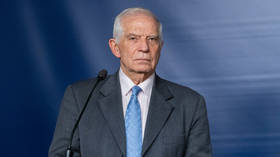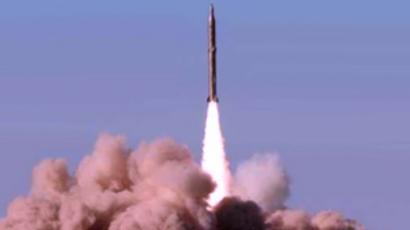“US Congress to ratify new START treaty before end 2010” - expert
In the coming days President Barack Obama will submit the new Russia-US nuclear arms reduction treaty to Congress for ratification. Expert told RT that despite criticism, US lawmakers are likely to approve the deal.
US Senator Richard Lugar told the Itar-Tass news agency that the new START treaty would be submitted to the Senate as early as May 7. According to Tom Collina from the Arms Control Association, the agreement would most likely be ratified by the end of the year.
“Senate critics have raised two premiere arguments. One – that the treaty constrains missile defense and the other – that the Obama administration is not doing enough to enhance or renew the nuclear stockpile,” he said.
“The administration dealt with both of those. On the first – the treaty does not prevent the US from pursuing the missile defense plans it currently has. There is nothing in the treaty that would prevent US plans from moving forward and even conservative critics have admitted as much,” noted Collina.
“The other, in terms of modernization – the administration has submitted a budget that will significantly increase the weapons complex activities that they are pursuing. So, on both accounts the administration really has addressed those concerns.”
The Russian and US presidents signed the historic new START treaty on April 8 in Prague. The Obama administration considers the agreement to be a major step toward the president's goal of a nuclear-free world, AP reported.
As Dmitry Medvedev pointed out earlier, both countries agreed to launch the ratification process simultaneously so “nobody would be embarrassed”.
Chairman of the Duma Committee on International Affairs, Konstantin Kosachev, said the ratification of the START treaty will be easier in Russia than in the US.
“We will have a substantial discussion and we will proceed with the ratification only when we know that we [have not made] any mistakes and this treaty is good for Russia, it’s good for its national security, it does not damage our national interests and so on and so forth,” Kosachev told RT. “It is not easy either in Russia, but again it’s much more difficult in the States, and this is why we want to synchronize our procedures.”
Some analysts, however, believe that there will be no problem with the ratification of the treaty in both countries.
“I think we should expect intensive debate in the Senate: republicans will attack Obama and stress weak sides of the agreement, Obama and his allies will protect the treaty. But I don’t think this will influence the final decision that is likely to be positive,” Ivan Timofeev from Moscow State University of International Relations told RT. “We should expect new treaty in a short period, and there’ll be no serious delays in ratification. We won’t have to wait for years.”













